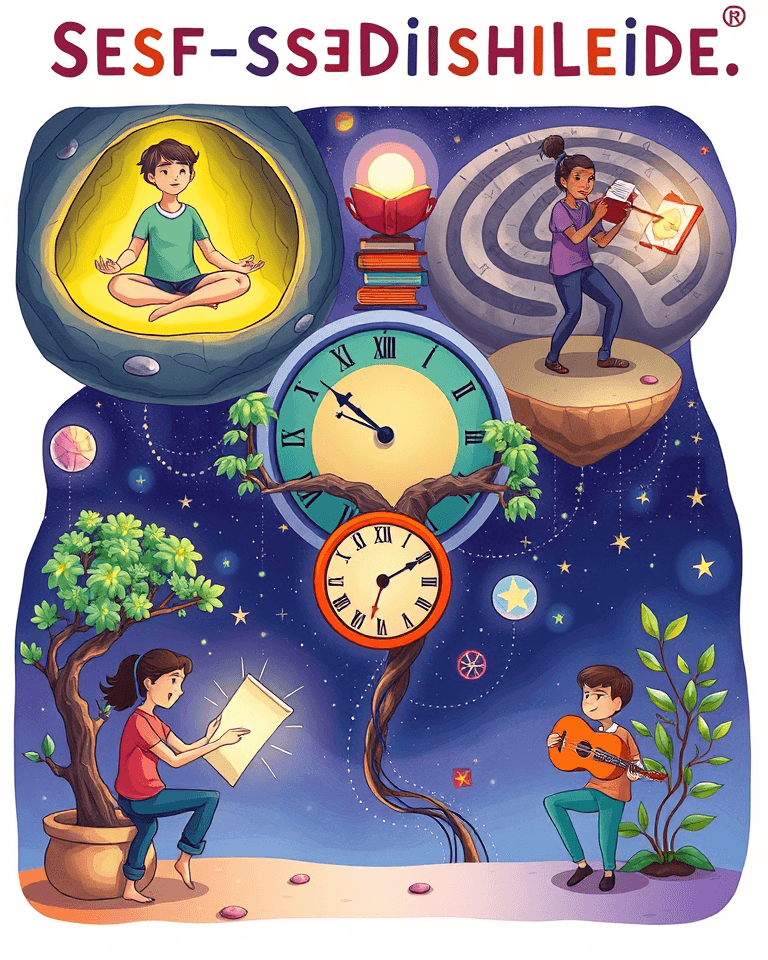Self-discipline is often touted as the cornerstone of success, yet the advice surrounding it can sometimes feel repetitive and uninspiring. We hear about setting goals, managing time, and creating routines, but what about the less-discussed strategies that can truly move the needle? Here are five powerful, yet often overlooked, self-discipline habits that can transform your approach to achieving your goals.
The Power of “Small Actions”: Start Tiny, Build Big
One of the biggest hurdles to self-discipline is the feeling of being overwhelmed by large, intimidating tasks. The conventional wisdom often emphasizes breaking down large goals into smaller, more manageable steps which is great advice, but it sometimes fails to get us started in the first place. A better approach? Start ridiculously small. Instead of aiming for an hour of exercise, commit to just 10 minutes. Rather than attempting to write a 1000-word report, focus on crafting just the first paragraph.
This strategy is not about being lazy; it’s about leveraging the power of momentum. These tiny actions are so easy that it’s almost impossible to say no to them. By making the initial step incredibly simple, you overcome the inertia that often paralyzes us. These small victories build confidence and pave the way for more significant accomplishments. The key here is consistency over intensity.
“Discomfort Training”: Embrace the Uncomfortable
Many people struggle with self-discipline because they avoid discomfort at all costs. We tend to gravitate toward easy, comfortable activities and shy away from challenging or unpleasant tasks. However, true self-discipline is born in the crucible of discomfort. This doesn’t mean seeking out suffering, but it does mean deliberately stepping outside your comfort zone.
This can involve consciously choosing to do things you dislike, such as tackling a challenging project first thing in the morning, or sticking to a workout routine even when you don’t feel like it. By training yourself to tolerate discomfort, you’re building mental resilience, strengthening your willpower, and learning that you are capable of pushing through difficult situations. This will make you less likely to procrastinate when faced with any challenge.
Mindfulness with Urges: Acknowledge, Don’t Engage
Self-discipline isn’t about suppressing urges; it’s about understanding them. We often make impulsive decisions because we react to urges without thinking, like automatically reaching for a sugary snack or scrolling through social media when we should be working. A mindful approach involves acknowledging these urges without immediately acting on them.
When an urge arises, take a moment to observe it. Where do you feel it in your body? Is it a sense of anxiety, boredom, or perhaps a craving? By simply observing the urge, you create a space between the stimulus and your reaction. This gives you the chance to make a deliberate choice, rather than acting on autopilot. Practicing mindfulness strengthens your ability to control impulses and make choices that align with your goals. It helps you understand that urges are temporary and do not have to dictate your actions.
The Power of “Why”: Align Goals with Deep Purpose
Setting goals is an important step, but if those goals don’t align with your deep values and purpose, your motivation may quickly wane. Many people set goals based on external expectations, without truly understanding why they want to achieve them. This lack of connection can quickly lead to burnout and a loss of self-discipline. It is essential to find your why.
Take the time to examine your goals and explore the deeper motivations behind them. Why is this goal important to you? How will achieving it impact your life and values? If the reason is shallow, like seeking validation or keeping up with societal pressure, it’s unlikely to keep you motivated through challenges. When your goals align with your deepest values and purpose, your self-discipline becomes a lot more effortless and rewarding.
Focus on the Process, Not Just the Outcome: Enjoy the Journey
Many individuals become fixated on the end result, often overlooking the joy and importance of the journey itself. This mindset can lead to impatience and frustration, which can hinder your self-discipline. A more effective approach involves shifting your focus to the process of achieving your goals.
When you concentrate on the process, you begin to appreciate the small, daily actions that contribute to your overall objectives. Instead of seeing each task as a chore, you perceive it as an integral part of your growth and journey. This can make even mundane tasks more enjoyable and meaningful, improving your consistency and overall self-discipline. It’s also vital to celebrate the small wins along the way. This makes it easier to keep going and further cements your self-discipline.
Conclusion
Self-discipline is not about rigid rules and harsh restrictions; it’s about conscious choices and cultivating the right habits. By incorporating these often-overlooked strategies into your life, you can move beyond the conventional advice, build a stronger sense of self-mastery, and achieve your goals with greater ease and fulfillment. Embrace the unconventional, and watch how your self-discipline blossoms.










